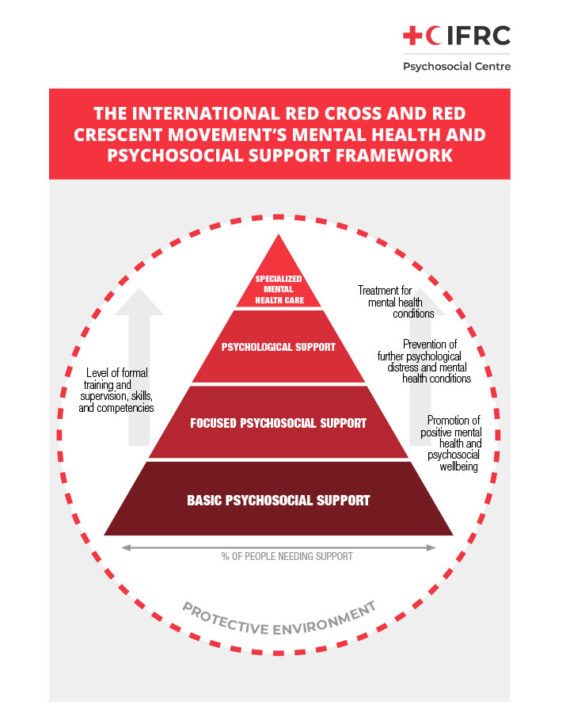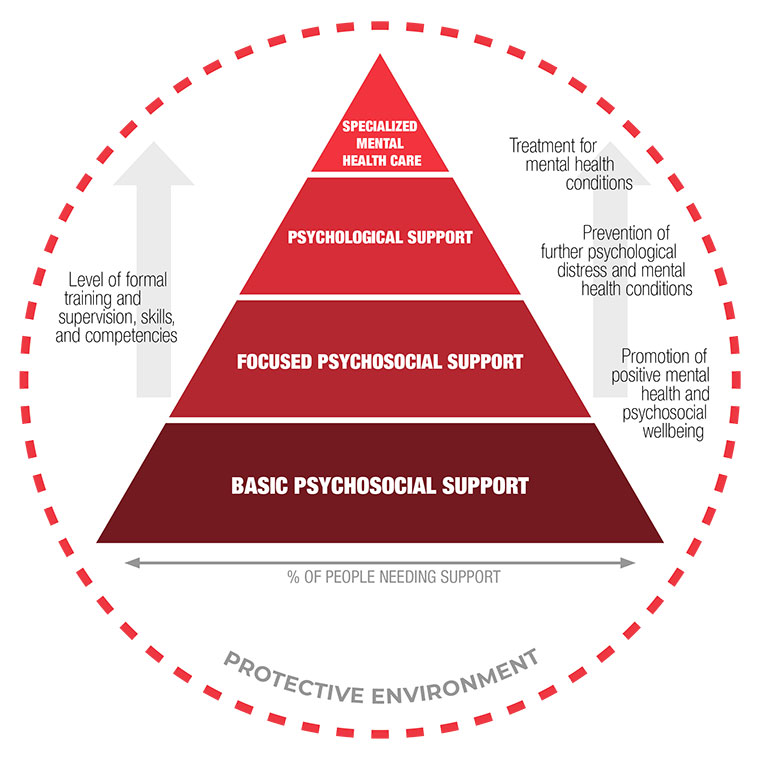The PS Centre has published a new infographic explaing the Mental Health and Psychosocial Support Framework.
Each component of the Movement responds to mental health and psychosocial needs in accordance with its role and mandate. The pyramid model represents the framework of mental health and psychosocial support services that are required to address the needs of individuals, families, and communities in all contexts.
A key to organizing mental health and psychosocial support is to develop a layered system of complementary support that meets the needs of different groups. This multi-layered approach does not imply that all Movement components must provide services in all layers. However, Movement components are expected to assess, refer, and advocate in relation to the full spectrum of mental health and psychosocial support presented in the model, from basic psychosocial support through to specialized mental health care.

The top layer of the pyramid includes specialized clinical care and treatment for individuals with chronic mental health conditions and for persons suffering such severe distress and over such a period of time that they have difficulty coping in their daily lives. Examples of activities include treatment centres for survivors of torture and alternative approaches to drug therapy. Services are provided within State healthcare and social welfare systems and in detention facilities.
The left side arrow indicates that the higher up the pyramid an intervention occurs within the framework, the greater the extent of formal training and the level of ongoing supervision that is required to provide safe and effective care, treatment, and support. Similarly, the level of skills, and competencies in mental health and psychosocial support that are required of the helper increases the higher up the pyramid the support, care and treatment occurs.


